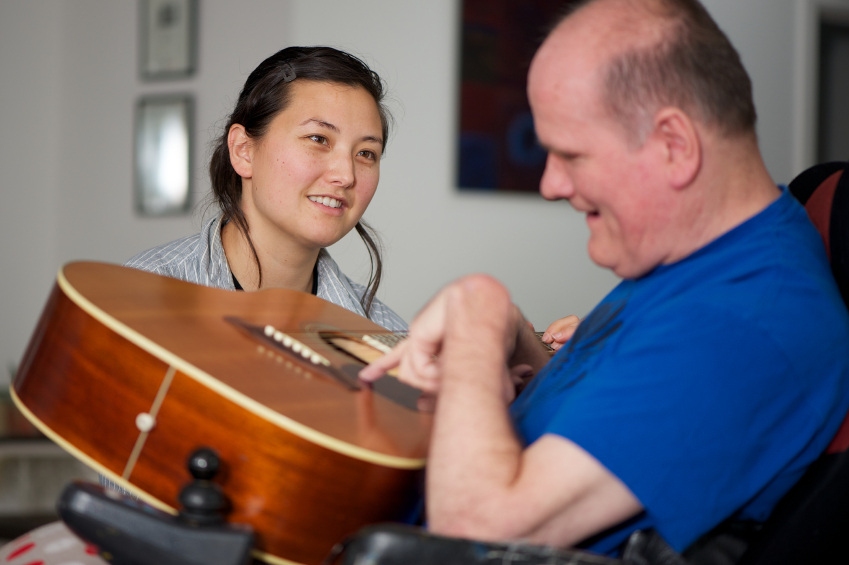Pine House Rehabilitation Service
Specialised Rehabilitation services for men with complex mental health needs due to mental illness and acquired brain injury providing a person centred holistic approach to recovery
What do we offer?
We offer an effective alternative to higher levels of secure care and aim to make a positive difference in the lives of all those we support. With an individualised, person centred approach, we can tailor the rehabilitation programme to the goals of the individuals in our care.
Recruitment - Live vacancies
Jobs that give you a sense of purpose and deep satisfaction. You should enjoy going to work every day. The right environment and support allows you to flourish and deliver great care.
Please take a look at our current vacancies
Excellent accommodation
20 en-suite bedrooms all with access to lounge spaces, group rooms and a kitchen. There are shared activity spaces on the ground floor and a garden with seating.
Person centred approach
We offer an individualized treatment plan to meet the needs of individuals in our care.
Pine House Rehabilitation Unit
Pine House is a 20 bed inpatient rehabilitation service which provides high quality, holistic, person-centred rehabilitative care and specialised treatment for men with complex mental health needs due to mental illness and/or acquired brain injury.
Maximising recovery
Our service is designed to support those with mental illness or acquired brain injury to maximise recovery, working collaboratively to support them to achieve their goals.
We take a holistic approach to rehabilitation focusing on maximizing potential and promoting independence.
Effective therapeutic frameworks
The services therapeutic milieu aligns the rehabilitation and treatment process to work in parallel and incorporates principles of good practice, an overarching psychological framework, therapeutic (functional) activities, therapeutic interventions and specialised treatment. Our Psychosocial interventions follow a Stress Vulnerability Model that will contribute to patient recovery.
Admission Criteria
- Males aged 18 years plus.
- Informal, Detained under the Mental Health Act or Mental Capacity Act
- Complex mental health needs due to mental illness or acquired brain injury
- May have more than one diagnosis
- May be deemed a risk to themselves and/or others
- May have a history of treatment resistance
- Deemed suitable for rehabilitation in a non-secure setting
Frequently Asked Questions
Can I refer myself to Pine House?
Referrals to Pine House are funded through the local Clinical Commission Group/NHS. Please contact your GP or Care Co-Ordinator
Can relatives visit Pine House?
All visits are pre arrange with the ward staff
There is a dedicated visiting room. Some visits may be monitored by a member of our nursing team.
Is there parking on site?
Yes there is free onsite parking for visitors.
Can my children visit me in Pine House?
Children under the age of 16 may visit only when accompanied by an adult (who is a non-patient).
Visits by children are facilitated in the family visits room
Is smoking allowed?
Patients may be allowed to smoke in the patients garden area.
Treatment and Rehabilitation Approach
Our overarching approach is based on principles of cognitive and behavioural neurorehabilitation. The focus is on reducing cognitive loading, compensating for any cognitive deficits and managing behaviours that challenge informed by functional analysis of behaviour.
External Compensatory Aids
The treatment programme includes provision of external compensatory aids (e.g. notebooks, planners), regular orientation, providing a structured daytime routine, managing communication and providing information commensurate to the patient’s level of cognitive functioning. Occupational therapy and psychological interventions are tailored to meet the needs of patients with cognitive difficulties.
Weekly GP Visits
Speech and language therapy and physiotherapy is offered if required. Psychoeducation including brain injury awareness is offered in-group or individual sessions. Psychotropic medications are used when required to manage aggression, impulsivity and any comorbid anxiety, mood or psychotic disorders. Physical health care needs are addressed through our weekly visiting GP service and specialist hospital appointments are facilitated as and when required.

Rehabilitation Service for Complex Mental Health Needs
We have dedicated wards for men with complex mental health needs arising due to a combination of mental illness, personality difficulties and substance misuse. Complex Mental Health presentations are commonly associated with chaotic, traumatic, abusive, and neglectful experiences. Patients have often experienced one or more significant life event of considerable etiological significance.
Non pharmacological interventions when possible
Although organic, biological and genetic influences are considered, our focus is towards a move away from primarily pharmacological intervention (albeit retaining the use of medication as an important adjunctive treatment) towards psychological, social, and other non-pharmacological interventions.
Support to achieve potential
Service users are supported to achieve their potential and to recover/develop skills which will support them to live independently. This again should be relevant to the patient’s life, their hobbies, relationships and ambitions.

Acquired Brain Injury Service
The neuropsychiatric sequelae of acquired brain injuries including cognitive, emotional, behavioural and personality difficulties may predispose them to present to psychiatric services. They may present with a range of difficulties that makes it difficult for them to be managed in a community setting.
Personally meaningful activities
Neurorehabilitation for people with an acquired brain injury refers to the process through which they are assisted to achieve their optimum emotional, physical, vocational, and psychological well-being. We believe that Neurorehabilitation needs to be relevant to the aspects of each patient’s life. Therefore, it should involve personally meaningful activities, themes, interactions, and settings.

